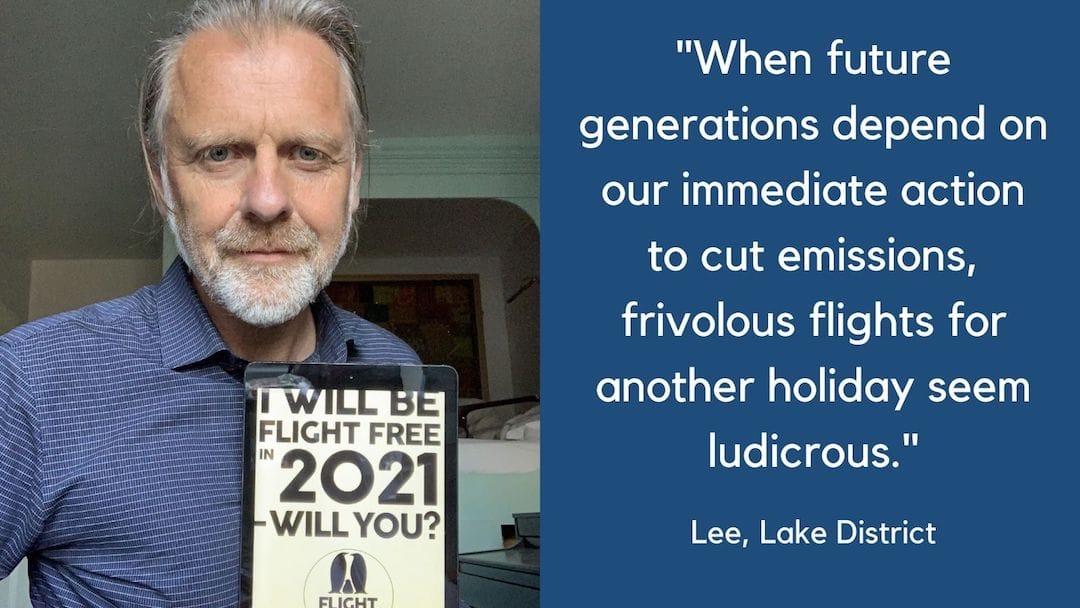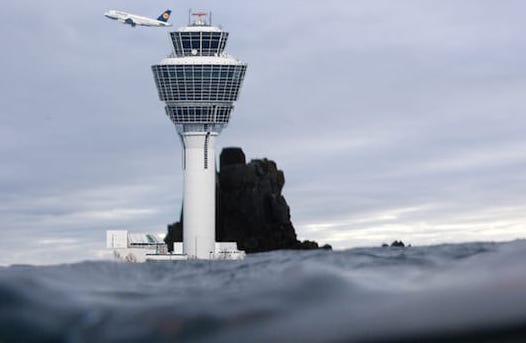
For the last five years I’ve been obsessing about carbon emissions the way I used to obsess about calories.
I’m wondering: is counting calories to lose weight a metaphor for cutting my carbon footprint?
Both are types of behaviour change where we trade off good behaviour against bad. We just can’t help ourselves. If I eat a pig’s trotter and mashed potatoes at lunch, I’d better have a salad for dinner. If I bike to work all year can I fly to New York on holiday?
Dieting is an excellent metaphor for offsetting, because offsetting is all about these kinds of choices. Taking a flight and offsetting the carbon emissions by paying for some trees to be planted is a bit like saying, ‘It’s OK to eat this almond croissant, because I’m going to go for a run round the park later.’ Even if I do get round to going to the park later (which is a big ‘if’, in my case) I know deep down that if I want to lose weight I really need to forgo the pastry as well.
"Dieting is an excellent metaphor for offsetting, because offsetting is all about these kinds of trade-off choices."
But what about that pig’s trotter? If I have a rocket salad for dinner, does it offset the calories from lunch? It all depends on what you tell yourself you would have eaten otherwise. Maybe you will end up having consumed the same calories overall as if you had eaten a more normal amount at both meals. But, sadly, the salad at dinner will not neutralise the calories you consumed at lunch. It will not, in other words, get you to net zero.
Now fossil fuel companies are talking about using Direct Air Capture to lock away your carbon emissions.
The diet equivalent of that is to eat whatever you want for the next ten years, and book a liposuction appointment at a very expensive Swiss clinic for the year 2040. Most of us will never be able to afford it, and in the meantime we will still get fat.
And, while we are thinking long term, what about setting ambitious carbon reduction targets for ten years in the future? It is like saying you’ll drop two dress sizes for your cousin’s wedding in July, doing nothing till May, telling yourself you’ll eat salad and work out twice a day in June, then ending up taking a trip to the shops to buy a bigger dress.
As for technology solutions – they are great, but only if they are available now. Someone, some day, will invent zero calorie icing. That’s not a great reason to eat the whole cake now. It’s the same with electric planes.
"Technology solutions would be great, if they were only available now. "
The more I think about reducing my carbon emissions and dieting, the more parallels I seem to find. Take the debate about individual responsibility and system change. As a nation, the UK has been getting fatter, and that’s not because we’ve all lost our will power down the back of the sofa. It’s because of an environment where cheap, tasty, high-calorie food is everywhere, while our everyday work and travel requires less physical activity. It’s the same with carbon – car dependent suburbs, wasteful food supply chains, relentless advertising of high carbon products like flights… they all get in the way of our personal good intentions.
But at the same time, we do have the power to resist. Our personal choices make a difference. Prepping your midday meal in advance helps you beat the craving for a sausage roll, and surrounding yourself with ideas for UK destinations will help you stay away from the EasyJet website when you come to book your holiday.
While system change is essential, people also need to feel empowered to make their own choices.
That doesn’t mean shaming people, or making us feel hopeless or like we shouldn’t exist. That can be counter-productive. We need support when we are trying to change. Partners and families can be our best supports, but can also be saboteurs – especially when their holidays are affected too.
It works best when you embrace the change. Rather than dwell on depriving yourself of a far-flung holiday, it’s more helpful to think ‘I am now someone who enjoys exploring the best the UK and Europe has to offer.’
"It's best when you embrace the change. Rather than dwell on depriving yourself, think ‘I am now someone who enjoys exploring the UK and Europe.’"
We also need to start now. ‘The diet starts tomorrow!’ people used to say, while accepting a proffered slice of cheesecake. ‘A moment on the lips, a lifetime on the hips,’ a friend once quoted to me, which was annoying at the time, but actually pretty accurate when it comes to greenhouse gas emissions. The emissions of a flight today take only a few hours to produce, but will stay in the atmosphere, warming the climate, for decades, if not centuries. A few hours in a plane, for a lifetime of climate strain?
There’s one big difference I’ve noticed between losing weight and cutting our carbon footprint. Dieting is something I’ve only ever done for myself. When it’s going well it feels great. When it’s not going well, it can feel like I am not worth the effort.




